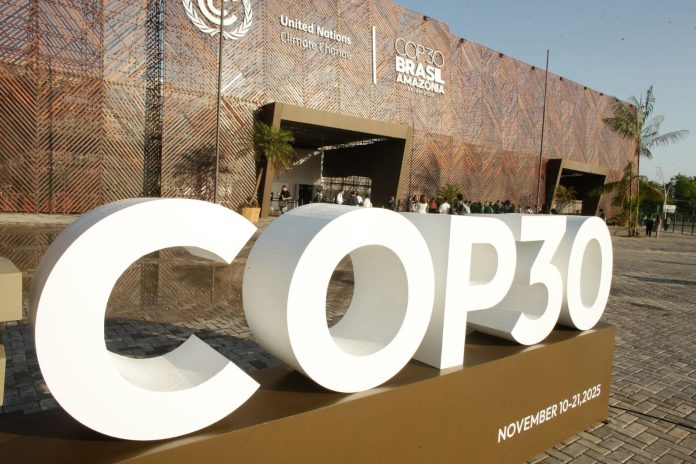As the 30th Conference of the Parties (COP30) to the United Nations Framework Convention on Climate Change wrapped up in overtime amid heated debates, a familiar sense of disappointment lingers. The summit, hosted in the heart of the Amazon rainforest, promised bold action on everything from fossil fuel transitions to adaptation funding. Yet, it ultimately failed to ensure a balance between the soaring demand for climate finance from vulnerable developing nations and the inadequate supply pledged by wealthier countries. This shortfall has profound implications for countries like Bangladesh, which stand on the front lines of climate impacts despite contributing minimally to global emissions.
The conference, attended by representatives from nearly 200 nations, aimed to build on the Paris Agreement’s legacy by operationalizing new nationally determined contributions (NDCs) and mobilizing trillions in finance. But as delegates departed, critics argued that the outcomes represent yet another missed opportunity in the fight against climate change.
Deadlock Over Fossil Fuels and Finance
Negotiations at COP30 hit a wall on several fronts, most notably the inclusion of a “roadmap” for phasing out fossil fuels. Countries remained deadlocked, with oil-producing nations resisting firm commitments that could disrupt their economies. This impasse echoed broader failures to address the expansion of fossil fuels, a key driver of emissions that continues unabated in many parts of the world.
Compounding these tensions was the perennial issue of climate finance. Developed nations, historically responsible for the bulk of greenhouse gas emissions, have long pledged to support adaptation and mitigation efforts in the Global South. At COP30, activists and delegates from low-income countries rallied for immediate funding, emphasizing that “climate finance now” is essential to meet unmet commitments. However, the summit’s draft decisions, while signaling progress on loss and damage funds, fell short of providing the scale and accessibility demanded.
Experts highlighted a critical integrity gap: much of the reported finance comes in the form of loans rather than grants, often overstated and irrelevant to actual climate needs. “Debt—especially commercial debt—should never be counted as climate finance,” noted one Bangladeshi advocate during side events. This practice exacerbates the debt burdens of already strained economies, turning aid into a financial trap.
The Demand-Supply Imbalance: A Systemic Failure
At the core of COP30‘s shortcomings is the mismatch between demand and supply in climate finance. Vulnerable nations, including those in South Asia, require trillions annually for resilience-building measures like flood defenses, sustainable agriculture, and green energy transitions. Bangladesh, for instance, has outlined needs exceeding $116 billion by 2035 to cut emissions by 20% while adapting to rising seas and extreme weather.
Yet, pledges from the Global North remain insufficient. While COP30 saw calls for an operational definition of climate finance to end double-counting and ensure transparency, the final agreements did not deliver binding mechanisms. Adaptation funding, crucial for countries facing immediate threats, continues to constitute only about one-third of global climate finance flows. This imbalance not only hampers progress but also erodes trust in the multilateral process.
Analysts point to deeper systemic issues: foreign aid cuts in donor countries threaten to further slash available funds, while private sector involvement prioritizes profit over equity. As one report noted, the failure to mobilize genuine grants leaves developing countries to foot the bill for adaptation themselves.
Bangladesh: A Microcosm of Global Inequity
For Bangladesh, a low-lying delta nation of over 170 million people, COP30‘s failures are not abstract—they are existential. The country, which emits less than 0.5% of global greenhouse gases, faces escalating floods, cyclones, and river erosion that displace millions annually. Women and children, comprising much of the informal workforce, bear the brunt, with climate shocks exacerbating malnutrition and health risks. Over 60% of Bangladesh’s informal workers are women, who rebuild communities post-disaster but lack access to green jobs and finance.
At the summit, Bangladeshi delegates demanded fair access to loss and damage funds, emphasizing that these resources must reach frontline communities without bureaucratic hurdles. They pushed for grant-based finance to “green” key sectors like ready-made garments (RMG), a cornerstone of the economy. “Climate finance isn’t about a shortage of money; it’s about changing the financing mechanism,” stated one expert, advocating for grants over loans to avoid deepening debt cycles.
Despite Bangladesh’s ambitious domestic efforts—drawing 75% of its climate funding internally and committing to robust NDCs—the international community’s response has been lacking. Partnerships, such as the UK-Bangladesh climate collaboration, offered some bright spots, including the establishment of a Climate Finance Action Fund. However, these are dwarfed by the overall shortfall, leaving the nation vulnerable to irreversible impacts.
Broader Implications for Climate Action
The inability to balance demand and supply at COP30 risks stalling global momentum. As emissions continue to rise and the window for limiting warming to 1.5°C narrows, the summit’s outcomes underscore a troubling divide between rhetoric and reality. For South Asia, where climate emergencies are routine, this means heightened calls for equity, adaptation, and justice-driven NDCs.
Critics argue that without tangible deliverables, conferences like COP30 risk becoming mere talk shops. “COP30 must deliver tangible outcomes for the vulnerable,” warned Bangladeshi commentators ahead of the event, a plea that went largely unheeded. Moving forward, integrating multilateral environmental agreements and prioritizing locally led, gender-responsive actions could bridge some gaps.
In the end, COP30’s legacy may be defined not by what was achieved, but by what was left undone. For nations like Bangladesh, the fight for climate justice continues—demanding not charity, but accountability from those who profited from the crisis. As the world looks to future summits, the pressure mounts: balance the scales, or face the consequences together.

